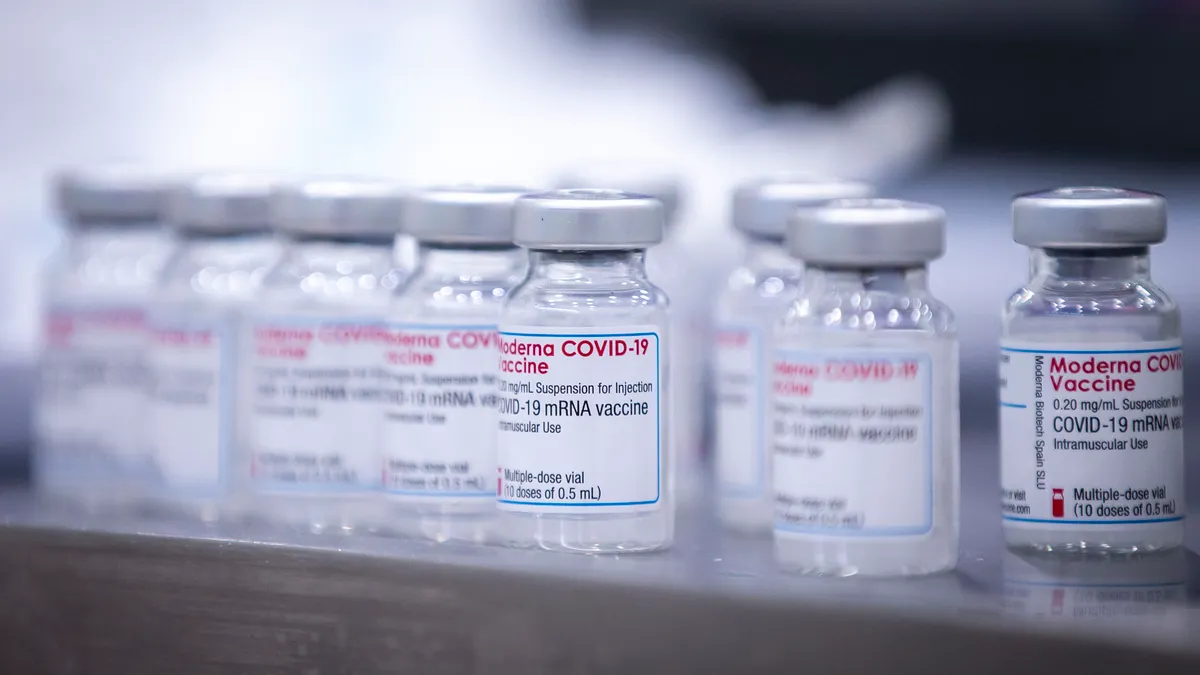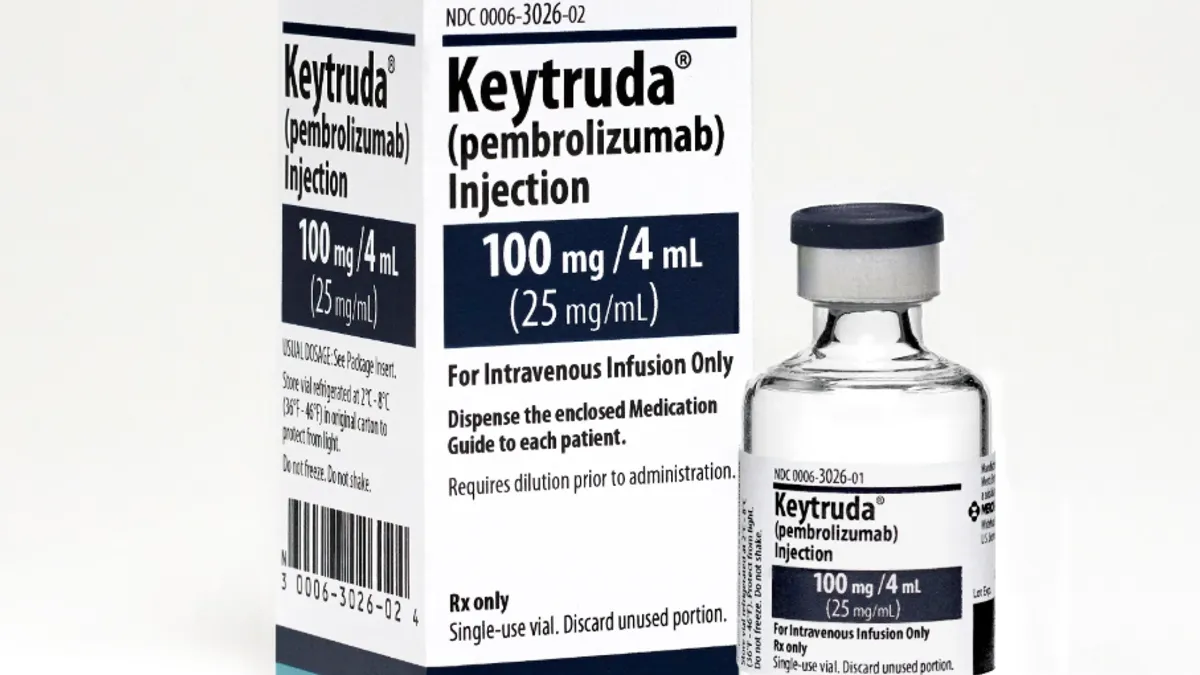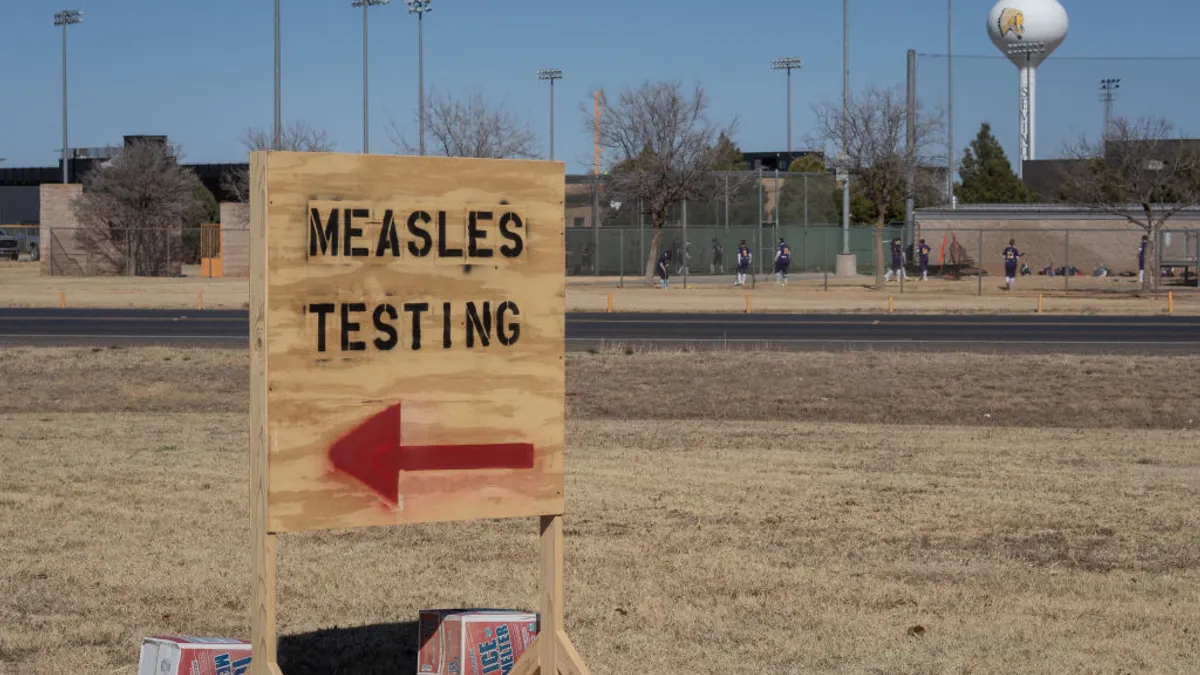The COVID-19 pandemic has made vaccine superstars out of Moderna, Pfizer and BioNTech. All three are known almost ubiquitously for their mRNA-based shots that are estimated to have saved over 20 million lives, earning each company billions in the process.
But in a new lawsuit, Moderna is alleging that Pfizer and BioNTech knowingly copied its patented mRNA technology for the pair’s COVID-19 shot, Comirnaty, and is requesting that the companies provide compensation for all vaccine sales to developed countries since March 8 of this year.
The suit, filed in both U.S. and German courts, comes just days after the U.S. government announced plans to stop buying COVID-19 vaccines and treatments in a shift to private market sales for such products. It also landed the same day Pfizer and BioNTech submitted their updated Omicron BA.4/BA.5 bivalent vaccine for emergency use authorization review in Europe.
Pfizer has not commented publicly on the suit, but a company representative told Fortune it was “surprised by the litigation,” asserting that the Comirnaty shot was “based on BioNTech’s proprietary mRNA technology” — not Moderna’s.
As more information about the suit emerges, details of the case may get lost in legal minutiae. To help make sense of it all, we’re breaking down and explaining Moderna’s case with 10 key quotes from the filing.
Moderna’s mRNA breakthroughs
“When the COVID-19 pandemic struck, Moderna had already conducted a decade of foundational research in the area of mRNA medicines, including specifically on coronaviruses, and was uniquely positioned to respond to the crisis.”
Moderna says it made two major pioneering advances in the field of messenger RNA that gave the biotech a leg up in using the platform to develop COVID-19 vaccines.
Between 2010 and 2011, scientists at the company developed a chemical modification that prevented the immune system from identifying and attacking mRNA as a foreign invader. The discovery, which replaced uridine in mRNA with 1-methylpseudouridine and delivered it as a lipid nanoparticle, became the base of Moderna’s mRNA platform.
Later, in 2015, Moderna began developing an mRNA vaccine for Middle East Respiratory Syndrome (MERS), a type of coronavirus, that encoded for the full length of the virus’ spike protein. While the vaccine never came to fruition, studies at the time showed success in preventing infection and provided the company a launching point for future vaccines, the company says in the court filing.
During those early development years between 2010 and 2016, Moderna obtained three key patents for its mRNA platform and disease-specific coronavirus vaccine design.
“As a company that had no commercial products at the time, these patents were among Moderna’s most valuable business assets.”
The company asserts those three patents — one for the “delivery and formulation of engineered nucleic acids” and two related to its betacoronavirus mRNA vaccine — are “foundational intellectual property,” without which it would have struggled to attract investors.
COVID-19 hits
“When COVID-19 emerged, neither Pfizer nor BioNTech had Moderna’s level of experience with developing mRNA vaccines for coronaviruses.”
When the COVID-19 pandemic swept the globe, Moderna had over a decade of experience working with mRNA technology, including for infectious diseases, and says it was “uniquely positioned” to address the crisis. The biotech had prior experience developing mRNA vaccines, both with its MERS research and early development of a vaccine for cytomegalovirus to prevent birth defects, the company argues.
Moderna began testing its COVID-19 vaccine, Spikevax, on March 16, 2020 — just a day after most U.S. states began implementing lockdown orders to prevent spread of the virus and a little over a month before Pfizer and BioNTech began a phase 1/2 trial of their vaccine.
The suit contends that prior to COVID-19, Pfizer did not have any candidates for infectious disease and had never developed an mRNA vaccine.
However, at that time, Pfizer’s partner BioNTech was developing several mRNA vaccines for various infectious diseases. Currently, the company uses multiple mRNA formats for its pipeline of candidates, including optimized uridine, nucleoside-modified, self-amplifying and trans-amplifying formats.
“Pfizer and BioNTech started with a number of different options when they considered how to design their vaccine … Ultimately, however, Pfizer and BioNTech discarded those alternatives and copied Moderna’s patented technology.”
In the early stages of R&D for a COVID-19 vaccine, the suit alleges that Pfizer and BioNTech studied four different mRNA formulations for the vaccine, including candidates that employed BioNTech’s unmodified uridine and self-amplifying mRNA formats.
However, the suit asserts that Pfizer and BioNTech exclusively focused on candidates that copied Moderna’s technology in clinical development stages. And it argues they copied the technology knowingly.
“The Moderna inventions that Pfizer and BioNTech chose to copy were foundational for the success of their vaccine.”
Further, the suit argues the Pfizer/BioNTech vaccine copies both key features of Moderna’s mRNA technology because it’s encoded for the full-length spike protein and uses the same chemical modification to prevent the body from attacking the mRNA.
Why now?
“Moderna refrained from asserting its patents earlier so as not to distract from efforts to bring the pandemic to an end as quickly as possible.”
The Pfizer/BioNTech COVID-19 vaccine has been on the market for close to two years, but during much of that period Moderna was not enforcing its patents for the mRNA technology or specific vaccine because of the “unprecedented nature” of the virus, the company says.
“Moderna announced on March 7, 2022, that it expected companies such as Pfizer and BioNTech to respect Moderna’s intellectual property and would consider a commercially reasonable license should they request one.”
But by the beginning of 2022, the company found that COVID-19 had entered a “new endemic phase” and that barriers to vaccine access throughout the world were no longer a result of supply shortages. Therefore, Moderna began enforcing its COVID-19 related patents in March 2022, with an exception for the 92 low- and middle-income countries in the Gavi COVAX Advance Market Commitment.
“But Pfizer and BioNTech have made clear that they intend to continue to reap profits from their use of Moderna’s patented technology in 2022 and beyond.”
Since that announcement, neither Pfizer nor BioNTech have yet reached out to Moderna to obtain a license for use of the mRNA technology, the suit alleges.
Pfizer is expecting sales of its COVID-19 vaccine to reach $33.5 billion this year, according to the company’s second quarter earnings report, outpacing Moderna’s projected sales of $21 billion for the year.
Legal arguments
“Moderna filed this suit so that it may obtain fair compensation for Pfizer and BioNTech’s continued use of Moderna’s patented technologies.”
The Massachusetts-based biotech’s suit is focused exclusively on the period after it began enforcing its patent on March 8, 2022. The company isn’t asking for Pfizer and BioNTech to cease sales of their COVID-19 vaccine.
Rather, it is asking the court to find that Pfizer and BioNTech willfully and knowingly infringed on three foundational patents and is seeking monetary damages for sales of the vaccine to developed countries, not including the U.S. government, on or after March 8, 2022.
“Indeed, were Pfizer and BioNTech allowed to freely copy Moderna’s patented technology for their own benefit, the next generation of biotech startups would lose their ability to rely on the patent system that is the bedrock upon which future medicines will be discovered.”
If the court does not rule in its favor, Moderna argues it will set a precedent that may weaken the authority of federal patents for biotech startups in the future

















